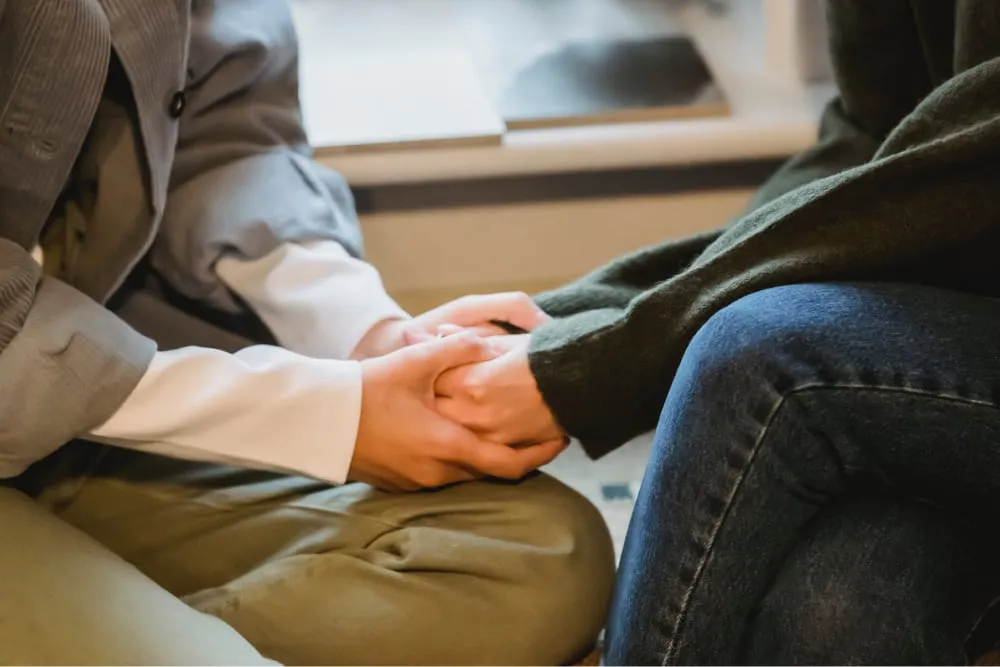What is the biopsychosocial model?
In 1960, Dr. George Engel first published his unified concept of health and disease: the biopsychosocial model. This attempted to define the mechanisms and processes whereby health is either maintained or disease develops. (4)
Philosophically, it helps clinicians understand how suffering, disease, and illness are influenced by culture, society, childhood, and the patient’s perspective of their personal experience. This came at a time when clinicians viewed patients as objects in an exclusively analytic and reductionistic way. Dr. Engel criticized how medicine at the time dehumanized and disempowered patients, and wished to bring more empathy and compassion into medical practice. (5)
At Within Health, we fully support and use the biopsychosocial model. Since 1960, a plethora of research has identified numerous events and factors that can increase someone’s risk of developing an eating disorder like bulimia nervosa.
Is bulimia nervosa genetic?
Based on the current research available, yes it would appear bulima nervosa may be tied to genetics. Researchers reviewed a large population-based sample (>700,000) of full-sisters and maternal half-sisters born in Sweden between 1970-2005 that struggle with either anorexia nervosa or bulimia nervosa. Their results support the claim that BN does have genetic etiologies, which should encourage more genetic research. (2)
According to The National Association of Anorexia Nervosa and Associated Disorders, those who have family members with bulimia nervosa can have as high as a 74% chance of also developing BN. (9,11)
Brain MRI studies demonstrate anatomical changes in those who have from bulimia nervosa, however it remains unclear if these changes came as a consequence of the disorder, or if they were contributory factors to developing BN. (6)
Can childhood experiences cause bulimia nervosa?
Yes, there is a connection between childhood experiences, and disordered eating.
Extensive population studies have identified the following childhood events that can increase someone’s risk of developing bulimia nervosa: (3)
- Family disruption
- Residential instability
- Placement in out-of-home care
- Familial death
- Parental illness
- Parental psychiatric illness
- Parental disability
- Severe parental criminality
- Parental substance abuse disorders
If a child feels chronically unsafe, or insecurely attached to their caregiver, this can hinder the development of resilience, grit, and their ability to self soothe. Instead of exploring and learning, the child can become hypervigilant, and may fearfully view the world. Children who adopt this mindset at a very young age may have altered perception of their subjective experience as adolescents and adults. Studies show that unfortunately, according to the biopsychosocial model, these types of influences may trigger someone to develop an eating disorder.
Experiencing stressful life events (SLEs) can understandably impact mental health. Another population study looked at an extensive list of SLEs, and found that those who suffer from an eating disorder had much higher rates of trauma, including rape, sexual assault, emotional abuse, and bereavement in their past compared to those without eating disorders. (7)
Children and adolescents that experienced bullying and weight shaming are significantly more likely to develop bulimia nervosa. This includes verbal, indirect, and digital bullying victimization. Bullying prior to eating disorder onset was significantly more common than bullying occurring after diagnosis. (8,11)
While overarching screening for BN is not currently recommended, research has found that the following people are at increased risk of developing bulimia nervosa. (6,10,11)
- Those with a history of adversity or trauma during childhood
- Young adults
- Women and girls, especially those with type 1 diabetes
- Transgender individuals Athletes
- People who struggle with anxiety or depressive disorders
- People who are extremely rigid or a perfectionist
Society and culture can also heavily influence the development of bulimia nervosa. According to the National Eating Disorders Association (NEDA), almost 70% of children aged 6-12 agree that media influences how they view their body, with nearly 50% saying that certain images make them feel that they need to lose weight.
One study showed that those who have a history or tendency to suppress their emotions are at increased risk of developing bulimia nervosa. Instead of venting or processing difficult emotions, they have a proclivity to hold onto damaging thoughts, and often avoid or deny that they exist, which may contribute to the use of disordered behaviors as coping mechanisms. (11,13)
Although the causes of bulimia nervosa are multifaceted and not fully understood, it is always possible to begin the process of healing from this eating disorder. Because of the complex nature of this disorder, treating people with bulimia must include careful attention to the behavioral, psychological, and social components. Depending on the individual, recovery from bulimia nervosa may involve exploring the ways that eating disorder behaviors serve as a coping mechanism, accessing support to work through trauma and treat co-occurring mental illnesses, and relearning a more peaceful relationship with food.






















